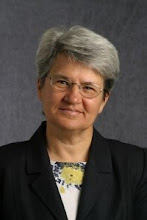
Each morning I take time to read the Daily Dose of Charles Spurgeon found on the internet. This great 19th century British preacher speaks to my soul.
Several months ago, the reading focused on Christ being the Bread of Life. Spurgeon then drew on the example of The Hospital of St Cross. (Rather than being a medical facility, this oldest almshouse in England derives its name from 'hospitality'.) Instituted in 1132 AD, the brothers of The Hospital of St Cross have been dispensing a Wayfarer's Dole - a small beaker of beer and a morsel of bread to anyone who is hungry. Here at this place is found an inspiring chapel, a lovely gift shop where attendants share their rich history, along with a Hundred Men's' Hall (pictured) where up to one hundred poor received a daily ration of food, particularly during the depression.
Charles Spurgeon wrote of the practice of these pious brothers in the mid-1800s. Gathering up a carload of 21st century Newbold College students, we set off for Winchester one recent Sabbath afternoon to ascertain if this tradition, this service continues today. Indeed, while the beer is no longer part of the dole, every day since 1132 AD the brothers of of St Cross have been giving bread to anyone in need. Imagine, 878 years of uninterrupted service offered to fellow humans in need!
While today's fast-paced society continually calls for change, some things are better left preserved - such as a deep caring for and commitment to one another. May God help us to be as constant in our regard for others as are the brothers of St Cross.



